

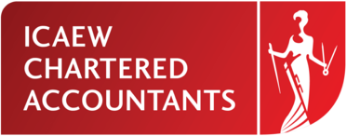
Setting up as a sole trader in the UK couldn't be easier - you choose a business name, register for self-assessment with HMRC, and you're ready to go! It's one of the simplest business structures available - and a popular choice; more than three million people in the UK are registered as self-employed sole traders.
While being your own boss or running your own business has multiple benefits, you must manage everything yourself, including your sole trader self-assessment tax return. And this can be a frustrating and time-consuming chore!
The team at Prescient Accounting understands exactly how exasperating this process can be, and our specialist service for self-assessment tax returns will completely remove this burden from your shoulders.
With a broad knowledge of the UK tax system, our expert team will guide you through every aspect of the self-assessment process, from initial registration to paying your tax bill.
You are welcome to call us to learn more, but here's a general overview of how we can help you...
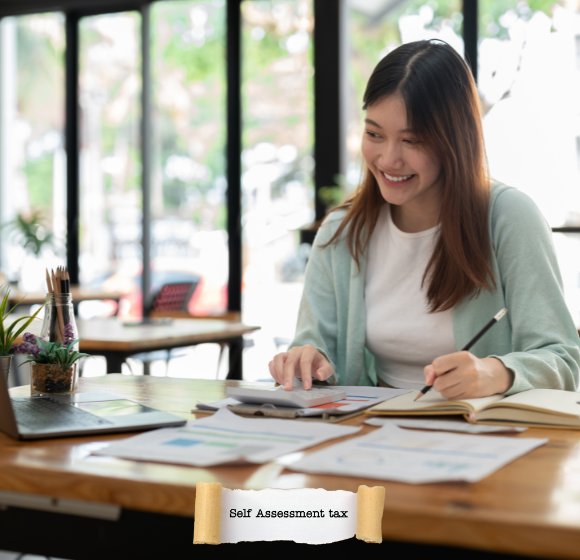
Let us know what you need from your accountants, we’re happy to help.
We believe that the role of the accountant is much more than dealing with pure compliance. That’s why we’re offering a free video or telephone call with one of our team of chartered accountants, to give you straightforward and open dialogue about your tax and accounting affairs.
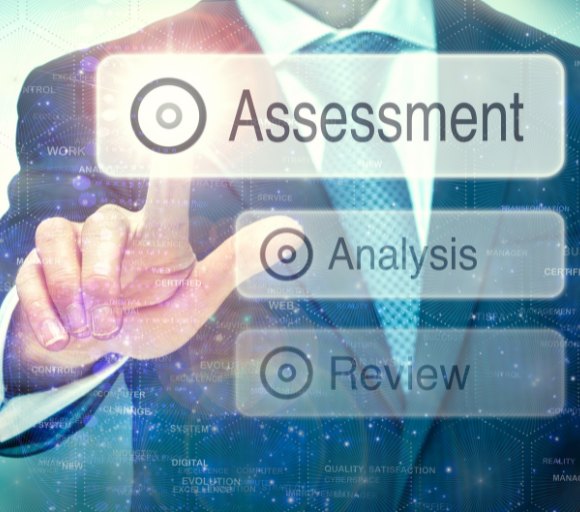
In the UK, you generally need to register for SA in order to pay income tax if you meet the following criteria:
If you belong to any of these groups, you must register as soon as possible to avoid HMRC penalties.
HMRC uses the self-assessment tax return to calculate how much tax you owe for a particular tax year.
Online registry is the quickest and easiest option. Simply set up a Government Gateway account at the Gov.uk website, and you'll be supplied with a Unique Taxpayer Reference number (UTR) within ten days. You'll need this number when you complete your tax return, so keep it safe.
When you register, make sure you have your NI number and details of your income sources. Once this is done, you'll be a self-employed person!
You can also register by phone (be prepared for a lengthy wait in the queue!) or by post when you download the SA1 form from the HMRC website.
While completing your tax return can be daunting, it is actually fairly straightforward. All it takes is some preparation and helpful advice from your friendly Prescient Accounting tax expert!
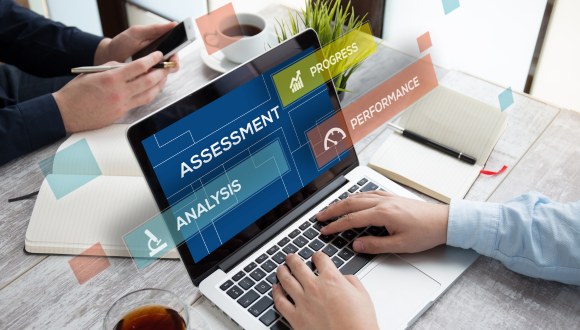
The first step is collating all the documents and data you need. This includes items like:
Other Taxable Incomes - If you have other income sources outside your core business activities, add them to the list. These could include property income, dividends from investments, employment income, or royalties.
Not all business expenses are eligible for tax deductions. It's crucial to understand HMRC's guidelines and only claim expenses that are 'wholly and exclusively for the purpose of your business'.
Organise your receipts and invoices into relevant categories, such as:
Online filing is the preferred method by HMRC and offers several advantages:
Online tax returns must be submitted by January 31st of the current tax year.
Paper filing, while not recommended by HMRC, remains an option for those who:
Important Note: paper tax returns must be submitted by the October 31st deadline to avoid penalties.
The self-assessment tax return form consists of various sections requiring specific information:
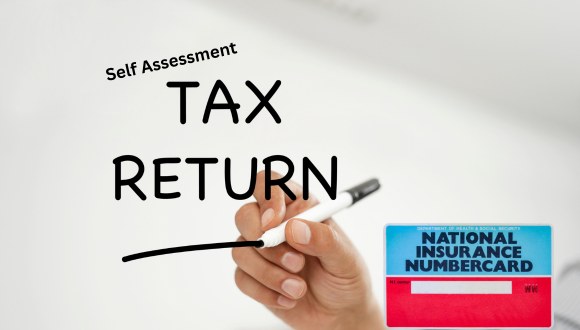
The self-assessment tax return system calculates your total tax liability, which includes both income tax and Class 2 and Class 4 National Insurance contributions for self-employed individuals. Here's how it works:
This system is designed to spread your tax liability for the upcoming year if you're a self-employed individual filing a self-assessment tax return. Here's a breakdown:
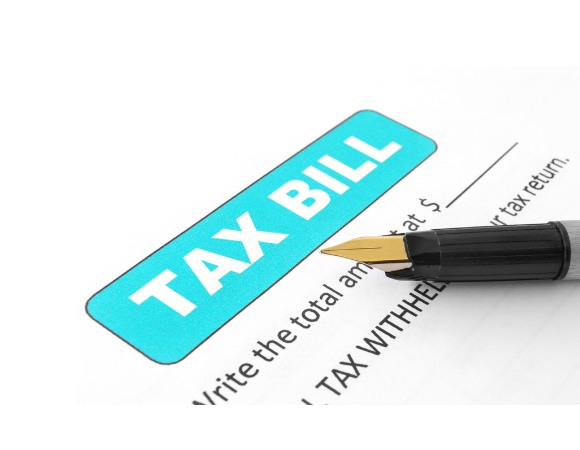
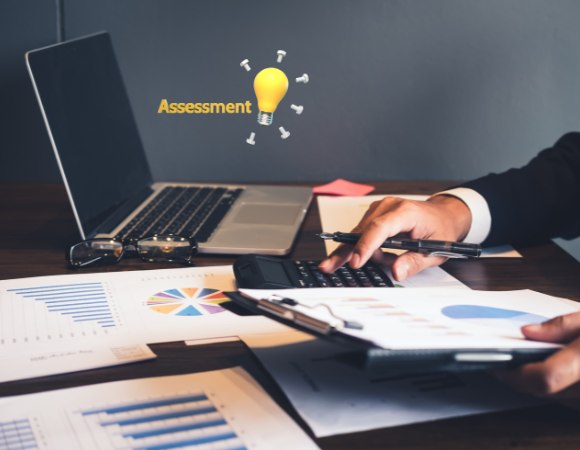
Self-employed workers know they have to pay tax and National Insurance, but it doesn't have to be a chore!
Don't let self-assessment tax returns add stress to your busy schedule. Let Prescient Accounting's expert team handle the complexities, allowing you to focus on growing your business. We'll ensure your return is filed accurately and on time, maximising your tax efficiency.
Contact us today for a free consultation and discover how we can make your life easier and empower you to make informed financial decisions for your business.

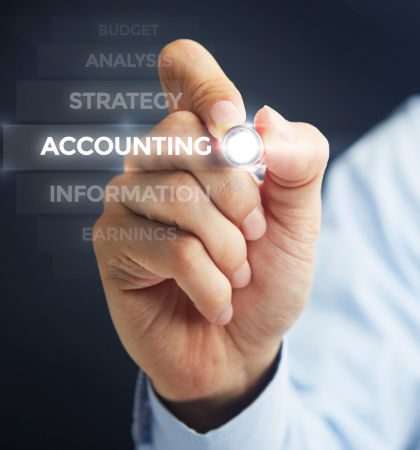
Sole trader self assessments are tax returns that individuals running their own business must file to HMRC, reporting their income and expenses for the tax year.
To register for self assessment as a sole trader, you need to notify HMRC about your business, after which you'll receive a Unique Taxpayer Reference (UTR) for filing your tax returns.
As a sole trader, you can deduct costs directly related to your business, such as office supplies, travel expenses, and business insurance, from your taxable income.
The deadline for submitting your online self assessment tax return and paying any tax owed is January 31st following the end of the tax year.
You can file your self assessment tax return online through HMRC's website using your Government Gateway account, ensuring you have all necessary financial records handy.
Missing the self assessment deadline can result in late filing penalties starting at £100, with additional charges accruing over time if the delay continues.
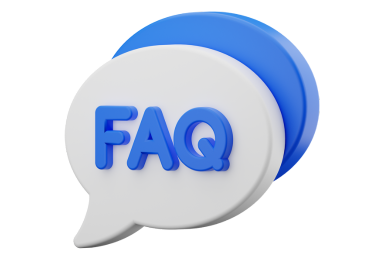
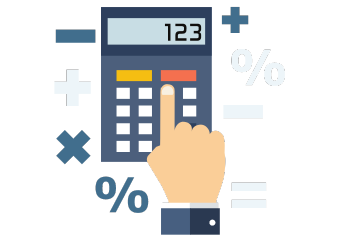
We believe that the role of the accountant is much more than dealing with pure compliance. That’s why we’re offering a free video or telephone call with one of our team of chartered accountants, to give you straightforward and open dialogue about your tax and accounting affairs.